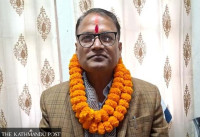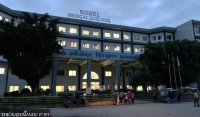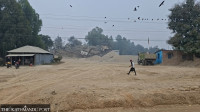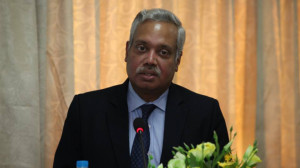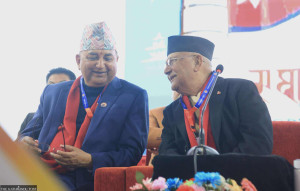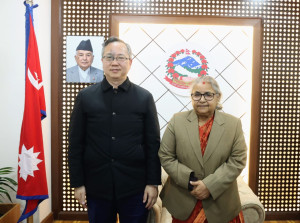National
People long for some ‘good news’
A sense of anger coupled with despair and uncertainty can best describe the public mood while the government and Madhes-centric parties remain indecisive on ending the Tarai standoff even as the protest in the country’s southern plains completed 100 days on Saturday.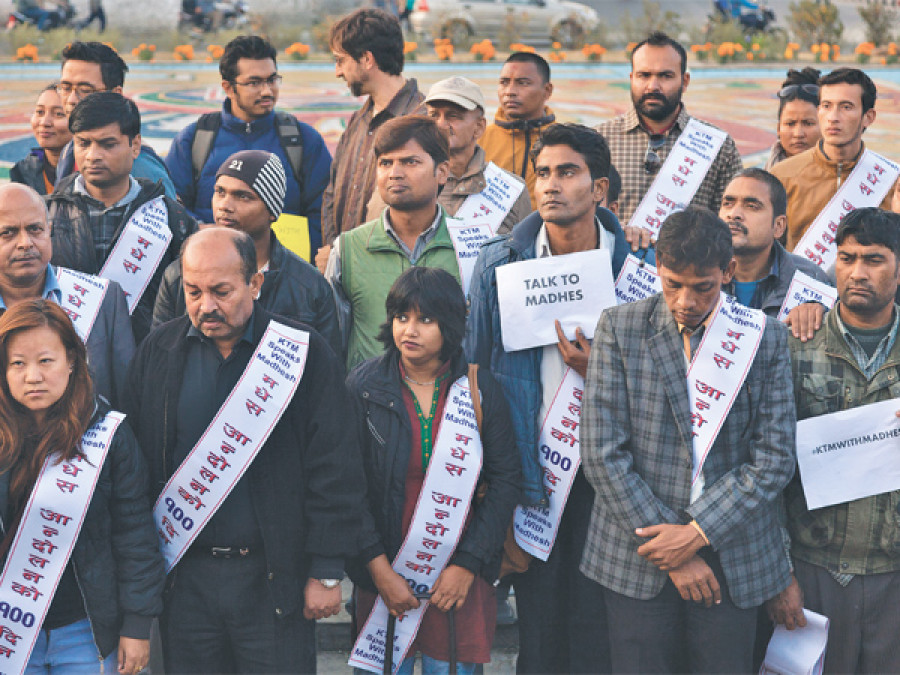
A sense of anger coupled with despair and uncertainty can best describe the public mood while the government and Madhes-centric parties remain indecisive on ending the Tarai standoff even as the protest in the country’s southern plains completed 100 days on Saturday.
The nation is reeling under an acute shortage of essential commodities including fuel and medicines. Roads are empty. Schools and factories are closed. Daily life has come to a standstill.
With neither major parties nor protesters relenting, there are fears of a prolonged stalemate and hardship.
Samyukta Loktantrik Madhesi Morcha, an alliance of four Madhes-centric parties leading the protest, has announced to intensify its agitation after some respite during the festivals. Major parties, on the other hand, continue to hold differing positions on state delineation, the main demand of the protesters, making an immediate agreement unlikely.
Further delay in addressing rightful concerns of the Madhesi communities, according to independent observers on the ground, could throw the movement into the hands of extremist elements, making consensus even more unlikely.
“This growing polarisation is squeezing the moderate space and arming the extremists. People like CK Raut and Matrika Yadav, who are demanding independent Madhes, are trying to cash in on the growing public frustration,” said Professor Lalan Dwibedi, chief of the Thakur Ram Multiple Campus, Birgunj.
Recent episodes of sporadic violence in several Tarai districts are an indication that the protest is gradually slipping out of Morcha’s hands. Dozens of vehicles including ambulances carrying patients and a truck ferrying medicines have been vandalised in the last couple of days. Even some mainstream leaders have started speaking for independent Madhes to project themselves as the Messiah of the Madhesi people.
However, Prem Chandra Jha, a journalist based in Rautahat, sees the violence as a manifestation of the frustration caused by the prolonged impasse and an acute shortage of essentials. He said that the agendas of people like CK Raut have been given more space than they deserve.
“The ground reality is completely different. Most people feel proud to be Nepali,” said Jha, adding that a large number of them are protesting for equality and identity.
“People here don’t want discrimination and abuse from Kathmandu for their look, language and dress. They just want to be treated as equals and want Kathmandu to ensure that environment,” said Jha.
The Madhesi Morcha claims that its demand for inclusive and proportional representation in all state bodies and the delimitation of electoral constituencies could just create an environment for equality for the people of Tarai.
“These are people’s demands. Thirty people have already scarified their lives in the past few months. Even people in far-flung villages are expressing their aspirations for equality,” said Mahantha Thakur, chairman of the Tarai Madhes Loktantrik Party.
While the major parties have “more or less” agreed to two of these demands, they are reluctant to accept two provinces in the plains as demanded by the Morcha. They fear that agreeing to two autonomous provinces in the plains could spark protests in other areas. Districts like Morang, Sunsari and Jhapa, which the Morcha claims to be fighting for, are relatively calm.
Madhesi intellectuals said both the major parties and the Morcha should show optimum flexibility to resolve the crisis without further delay.
“Why not address the demands in instalment if it’s hard to fulfil all of them at once. People are desperately waiting for good news. Morcha should also relent,” said Dwibedi.
Experts also advise the government not to forget its responsibility to ensure good governance while becoming predominantly occupied with political problems. They also urge the government not to resort to force to solve a political problem, arguing that such tactics could only lead the people to sympathise with radical elements. “The day police killed a boy in Birgunj, CK Raut gave interviews to several media justifying his cause. It is how you give space to radical elements,” said a Birgunj-based journalist.




 14.12°C Kathmandu
14.12°C Kathmandu
